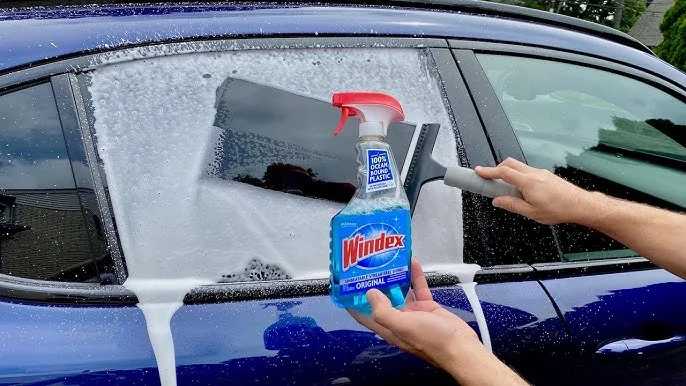Absolutely, you can tint your car windows in India, but there are rules you need to follow. The key is understanding the legal limits on tint darkness and reflectivity to avoid fines or penalties. Generally, the law permits tinting on side and rear windows, but not on the windshield, unless it’s the top few inches.
In short, yes, you can tint your car windows in India, but it must adhere to specific regulations regarding the level of tint darkness and reflectivity. Non-compliance could result in penalties, so it’s essential to choose authorized tinting services and ensure your car’s tint matches legal standards.
Getting your car windows tinted in India can enhance privacy, reduce glare, and protect your interior from UV rays. However, the legality of window tinting varies across states and cities, with some imposing stricter regulations than others. While many car owners are keen to add tint for comfort and style, it’s vital to stay within legal limits to avoid fines and vehicle rejection during police inspections. Knowing what’s permissible helps you enjoy the benefits of tinting without the risk of legal trouble. So, if you’re considering tinting your car windows in India, make sure to check regional laws and work with certified tinting professionals for a safe, compliant upgrade.
Can I Tint My Car Windows in India?
Understanding the Legal Framework for Car Window Tinting in India
In India, tinting car windows is regulated by the Motor Vehicles Act and the Central Motor Vehicles Rules. These laws set clear guidelines about the permissible tinting levels to ensure safety and visibility. It is important to know these rules before getting your car windows tinted to avoid legal trouble.
The regulations specify the **minimum visible light transmission (VLT) percentages** allowed for different windows. For example, the front windshield should have a VLT of at least 70%. Side and rear windows can have darker tints, but they must still meet specified standards.
Understanding the legal framework helps you make informed decisions and ensures your vehicle stays compliant with Indian law. Getting a tint that exceeds the permissible limits can lead to hefty fines, vehicle inspection issues, and even the confiscation of your car.
What Are the Allowed Tinting Limits in India?
The Indian government has established specific VLT percentages for different windows of your car. These are the standard regulations, although they might vary slightly from state to state:
- Front windshield: Minimum 70% VLT
- Front side windows: Minimum 50% VLT
- Rear side windows: No restriction or as per vehicle manufacturer’s guidelines
- Rear windshield: No restriction or as per vehicle manufacturer’s guidelines
The goal of these limits is to ensure the driver has clear visibility and to prevent accidents caused by overly dark tinting obstructing the view. It is important to note that some states might have stricter rules, so checking local laws is essential.
Popular Types of Window Tints Available in India
Car window tints come in various materials, each with different features, costs, and legal considerations. Here are some common types:
Dyed Window Tints
These are the most affordable options and are made of colored dye. They block some sunlight and reduce glare but may fade over time. Dyed tints usually meet legal standards when used within the prescribed limits.
Metalized Window Tints
Made with metallic particles, these tints reflect sunlight better and add a shiny appearance. They also provide increased privacy and heat rejection but can interfere with electronic signals such as GPS and mobile phones. Ensure they comply with Indian regulations.
Carbon Window Tints
Carbon tints offer excellent UV protection and do not fade easily. They are considered high-quality and usually meet legal standards when installed within specified limits.
Ceramic Window Tints
These are the most advanced and expensive options. They provide superior heat rejection, UV protection, and clarity. Make sure to select ceramic tints that meet Indian legal requirements to avoid violations.
Legal Process for Tinting Your Car Windows in India
Getting your windows tinted legally involves following a few straightforward steps:
- Choose a reputed tinting service that adheres to the government’s standards.
- Specify the desired tinting percentage to ensure it complies with legal limits.
- Request a receipt or certification from the installer showing compliance with vehicle tinting rules.
- Have your vehicle inspected if required by your state or local authority.
Many service centers in India also provide legal certification, which is essential for avoiding penalties during police checks or vehicle inspections. Remember, installing illegal tints can lead to fines and vehicle detention.
State-wise Restrictions and Variations in India
India’s vast size and diverse regulations mean some states have stricter rules. For example:
Delhi and Maharashtra
Strict enforcement policies and regular police checks make adhering to size limits crucial.
Karnataka and Tamil Nadu
More lenient, but still enforce regulations with penalties for non-compliance.
Rajasthan and Gujarat
Focus on safety, with frequent inspections and fines for illegal tinting.
Always verify your state’s specific rules before getting your windows tinted, as non-compliance might lead to legal issues.
Consequences of Illegal Tinting in India
Driving with illegal window tints can lead to serious penalties. These include:
- Fines that vary depending on the severity of the violation
- Vehicle detention or impoundment until compliance is achieved
- Potential challans during police checks
- Problems with insurance claims if an accident occurs and illegal tinting is involved
Police and traffic authorities actively monitor vehicle compliance, especially on major highways and city roads. It is better to stay within legal limits to avoid inconvenience and unnecessary expenses.
Factors to Consider When Tinting Your Car Windows in India
Several factors influence the choice and legality of window tinting:
- Sunlight intensity: India’s hot climate makes tinting attractive for heat reduction.
- Vehicle type: Commercial vehicles may have different regulations than personal cars.
- Privacy and security: Darker tints provide better privacy but must comply with laws.
- Cost and quality: Higher quality tints cost more but offer better durability and protection.
- Professional installation: Ensures compliance and long-lasting results.
Choosing the right tinting service with proven experience is key to meeting all legal and safety standards.
Frequently Asked Questions About Car Window Tinting in India
(As per your instructions, the FAQ section will be provided separately, so no need to add here.)
—
Matching your tinting choices with Indian regulations ensures both safety and legality. By understanding the rules, types of tints, and consequences, you can enjoy benefits like heat reduction and privacy without risking penalties. Always opt for professional, compliant tinting services and stay updated on regional laws to keep your vehicle within legal limits. Proper adherence makes your driving experience safer, more comfortable, and hassle-free.
How to Choose the RIGHT Window Tint | Don't Make A Mistake
Frequently Asked Questions
What are the legal restrictions on tinting car windows in India?
In India, the legal limits for window tinting depend on the vehicle type and location. Generally, the front windshield must have a transparency level of at least 70%, meaning only a light tint is permitted. The front side windows should allow at least 50% visibility, while the rear windows have more flexibility. It’s essential to follow these regulations to avoid penalties and ensure your vehicle remains compliant with traffic laws.
Are there specific colors or shades that are prohibited for car window tinting in India?
Yes, India prohibits the use of certain colors and shades for window tinting, such as reflective or mirror-like films that can cause glare or distractions for other drivers. Darker shades that restrict visibility from outside are also discouraged and may not be allowed for front windows. It is advisable to opt for light or neutral shades that meet legal standards to prevent penalties and ensure safety.
What documents should I carry if I get my car windows tinted in India?
When tinting your car windows, keep the original invoice of the tinting process, a copy of your vehicle registration certificate, and an insurance policy handy. If police or traffic authorities ask for inspection, having these documents proves that your vehicle complies with the regulations. Make sure your tinting installer provides a certificate or proof of compliance with legal standards for window tinting.
Can I tint my car windows in India for UV protection or heat reduction?
Yes, many car owners in India choose to add window tints for UV protection and heat reduction. However, they must still adhere to legal transparency levels. Using high-quality, compliant films helps block harmful UV rays and reduce interior heat without violating regulations. Check that the tinting film meets the legal standards for transparency before installation.
What are the penalties for non-compliance with window tinting laws in India?
If a vehicle does not comply with the window tinting laws, authorities can impose fines or even seize the vehicle until the tint is removed or corrected. Repeat violations may lead to higher penalties or legal action. To avoid these issues, always ensure your window tints meet the prescribed standards and keep relevant documentation ready for inspection.
Final Thoughts
Yes, you can tint your car windows in India, but you must follow specific regulations. The government sets limits on the darkness of the tint and the reflective properties to ensure safety and visibility.
Checking local laws and getting approval from authorities is essential before applying any tint. This helps avoid fines and legal issues.
In conclusion, can i tint my car windows in india? Yes, but ensure you adhere to the legal requirements to avoid penalties.



